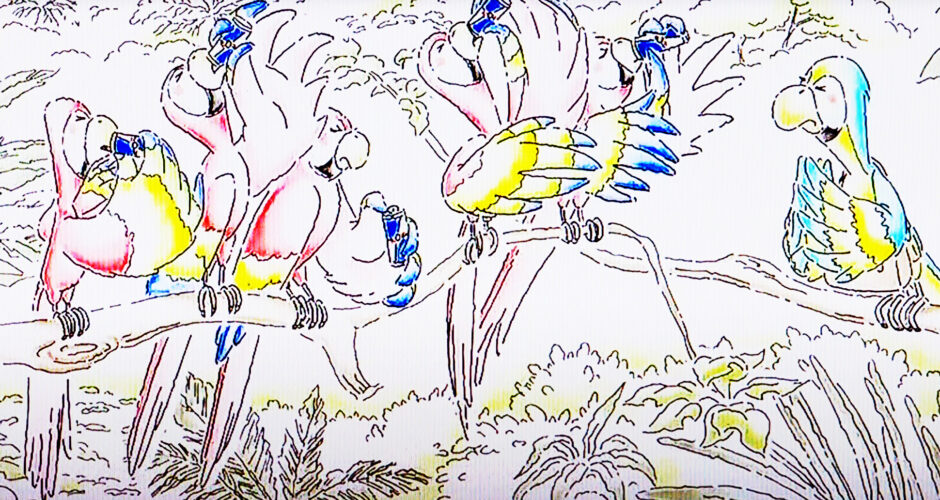
Are You Parroting? 🦜🦜🦜
April 25, 2023 |Scott Kubie
How do people think you make decisions? Commercials can be an interesting way to understand what advertisers think about you and what they think you want to hear. There are no accidents in commercials. Every word, image, and movement is designed to get you to decide to do something. This ad from Red Bull is a better example than most. In just 30 seconds, it captures how advertisers seek to get your attention and shape your decisions by appealing to your desired self-image. (Please watch) RED BULL: PARROTS
The ad makes a mockery of its message by preaching independence in the script while seeking to influence the decisions of a mass market audience. Red Bull thinks you want to use products that make you feel more independent. The ad comically relies on three false assumptions that will likely sell more Red Bull, even though they have the disadvantage of being complete fallacies.
False assumption #1: Consuming a product will transform you.
The ad’s core message is that having a Red Bull will make you a new, better person. Rather than sitting around complaining, drinking a Red Bull energizes the parrots to get active and do their own thing. Red Bull is suggesting you are so close to achieving a better version of yourself, and their product is what you are missing. It isn’t true. Many of the products we consume or apps we use succeed only in making us look better than we are—the effects of sin run deep. Real change is hard and often works at the deepest levels. In Romans 12:2, Paul exhorts us to “…be transformed by the renewing of your mind.” Don’t buy into the message consumption will make a big difference in your life. We all need more help than an energy drink can provide. (Romans 12:2)
God created humans to thrive in social environments. As Helen Keller noted, “Alone we can do so little; together we can do so much.”
False assumption #2: We should be individualistic.
The ad also assumes the five nostalgic parrots need a little boost (from a Red Bull) to exercise their inner individualism and thrive. Hanging out with the group isn’t a place for a bird to spread its wings. Instead, we are more likely to thrive inside a genuine community that relies on each member’s collective strengths. In 1 Corinthians 12, Paul compares the church to a body with different roles united in its successes and suffering. God created humans to thrive in social environments. As Helen Keller noted, “Alone we can do so little; together we can do so much.”
False Assumption #3: Individualism means independence.
When the blue parrot arrives, he instructs them to “Stop parroting everything. Drink a Red Bull and think for yourselves.” He succinctly articulates the false message of consumerism: “Express your individuality by doing what we tell you.” The world bombards us with this message. Messages shape us far more than our tightly-held illusions of individualism allow us to admit. If Red Bull believed people were naturally individualistic, they never would have paid to air the commercial. Like an antelope away from the herd, relying on our own, we become more vulnerable to those who are interested in what we can do for them.
By the end of the spot, the parrots are supposed to look independent. Underneath, the parrots are no more independent than they were at the start of the commercial. They listen to the same mass message. They all drink Red Bull together. They utter vacuous phrases. While using different words, they all say the same thing. They are still parroting. Are you?
Scott Kubie, CFA
President

